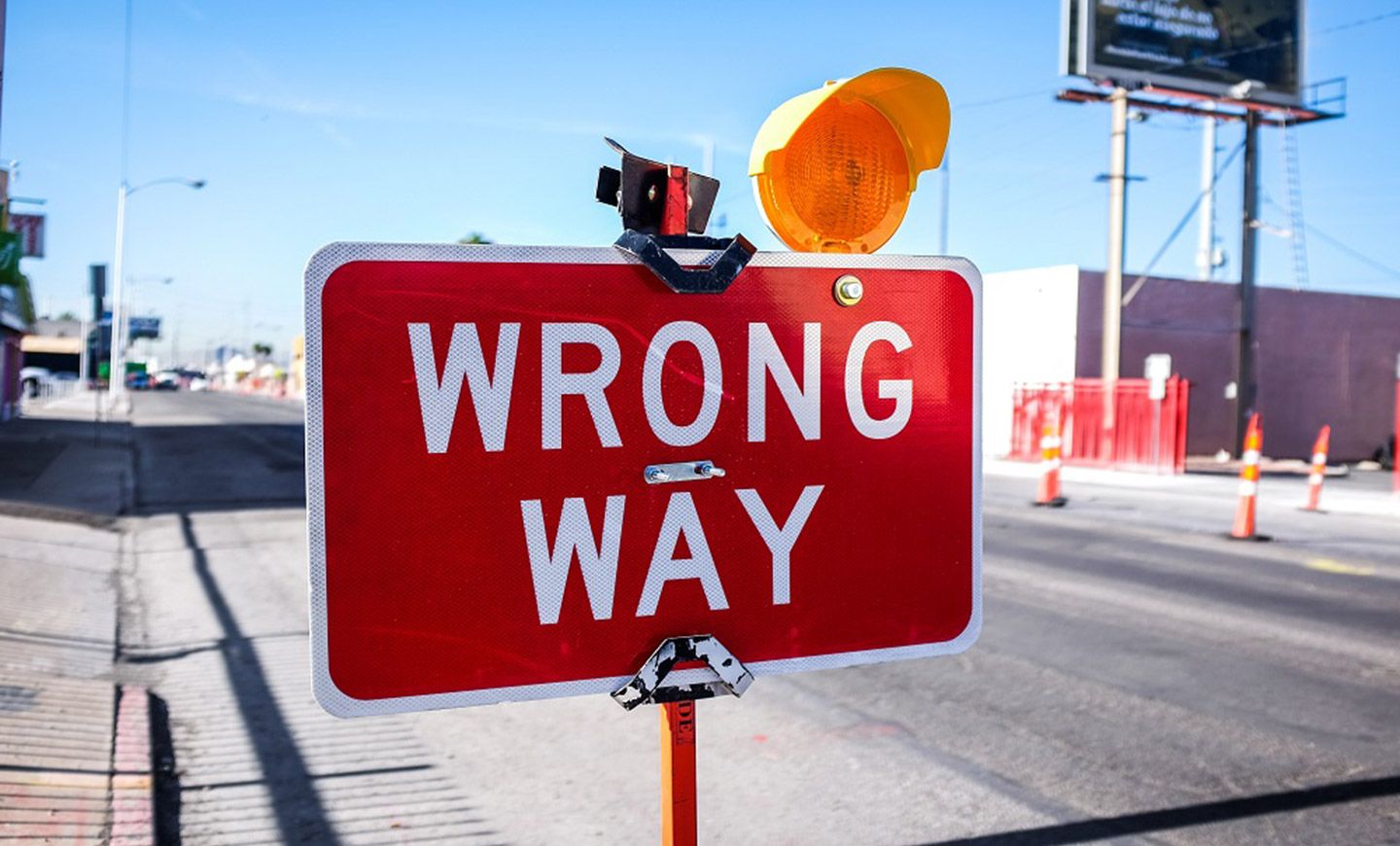You can’t avoid one-way roads in states. They’re everywhere. Whether you’re approaching a full street in a downtown metropolis reserved for traffic heading in just one direction, or you’ve found yourself in a roundabout or traveling along a rotary traffic island, you will have to deal with one-way streets at one point or another in your travels.
Certain state laws prohibit drivers from driving the wrong way on one-way streets for any reason, unless the motorist is in an authorized emergency vehicle. ARS 28-728 allows local authorities to designate highways and roadways for one-way traffic either permanently or temporarily as needed, and drivers must adhere to posted signage or face penalties. In addition, drivers in a roundabout must stay to the right of the island or posted signage at all times.
But that doesn’t mean they do.
Wrong-way driving is putting people in danger and we are, unfortunately, seeing these accidents more often. A few years ago, Governor Doug Ducey called on the State Transportation Board to do something about these wrong-way drivers. The Wrong Way Driving Detection Pilot Project may have an answer.
Wrong-Way Driving: a Real Problem
In February of 2017, a driver was killed on Grand Avenue and Sunrise Boulevard. On June 6, there were two fatalities due to wrong-way driving on the SR-51 and McDowell Road. The very next month, on July 21, there was a fatality on Loop 101 and Frank Lloyd Wright Boulevard.
While most wrong-way driving crashes aren’t fatal, the Wrong Way Driving Detection Pilot Project may be able to help put an end to all of them.
The Wrong Way Driving Detection Pilot Program
The WWDDPP will cost around $3.7 million, but it has the potential to save many lives.
Heat detection cameras will be installed in areas of the state that are thought to be “most dangerous” for wrong-way driving. When those heat sensors are alerted that a driver is on the wrong side of the road, they will alert other drivers, as well as the driver who’s on the wrong side of the road. In addition, the authorities will also be notified so they can make their way to the scene—hopefully, before there’s an accident.
This system can theoretically prevent wrong-way crashes because, in most instances, when a driver realizes he’s going the wrong way, he can correct himself before a crash occurs. The proof is that while there have been 956 cases of wrong-way driving in 2017, only a few have ended in fatalities.
How to Avoid a Car Accident on a One-Way Road
While we wait for the WWDDPP, avoiding Arizona car accidents is about following the law and paying attention to the road. Here are some of the best ways you can avoid being involved in a serious crash on a one-way road and protect yourself and your passengers.
Pay attention to road signs, especially when you are in areas of the state that you are unfamiliar with. Some roads begin as two-way streets and become one-way streets and some roundabouts may be difficult to spot until you are upon them.
Always drive toward the right side of the road. In this same vein, you should watch out for drivers who are not following the law or who may mistakenly turn down a one-way street going the wrong way. Pull over and get out of their way, if you spot them. Better safe than sorry.
Accidents happen, but most one-way car accidents can be prevented. If you’re injured in a car crash and need help, a skilled personal injury attorney can give you just that.
Death Is Not the Only Danger
As shown in the cases above, wrong-way driving can all too easily turn into a deadly situation. Even in the “best-case scenarios” where no one is killed, the driver of the car going the wrong way can be criminally charged, and have a personal injury claim filed against him or her for any damages or injuries caused.
If you have been injured due to someone else driving on the wrong side of the road, contact The Husband & Wife Law Team to help you get the compensation you need to cover your medical and vehicle repair expenses, emotional and mental suffering, and the loss of income sustained during recovery. We do whatever it takes to help victims through recovery and back to their normal lives.
Car accidents can result in serious injuries, and while you recover from yours, let us worry about getting you the compensation you may be entitled to. Contact us today.


